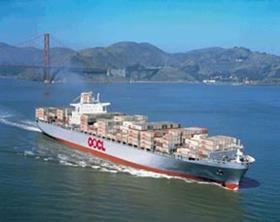
Orient Overseas Limited and its subsidiaries have announced a net profit of around US$1.9bn for 2010, which represents a marked turnaround in fortunes for the company after it recorded a loss of US$402m in 2009.
However, profits for 2010 were boosted by around US$1bn from the sale of OODL, a subsidiary company’s PRC property development business.
In a media release the company reported its net profit from the OOCL container transportation and logistics business for 2010 was US$842m, compared to a loss of US$377m for the equivalent activities in the previous year.
The Chairman of Orient Overseas Limited, C C Tung, said the company’s strong growth was aided by highly favourable conditions for the industry. “From the depths of the industry crisis in 2009, the extent of the rebound has been beyond all expectations. Unusually strong demand in the first half of 2010, and positive trading conditions throughout the remainder of the year, saw our lifting volumes nearing 2008 levels. Improvements in freight rates across all trades, combined with cost savings implemented in 2009, have produced a record profit for our liner operation in 2010,” he said.
He cautioned however that fuel and other cost pressures were re-emerging. “Continued focus on operational efficiency and pricing discipline will accordingly remain important in the current year,” noted Mr Tung.
“Following the sale of OODL in 2010, the Group `a subsidiary of the company` is now focused solely on its container transportation and logistics business under the OOCL brand. The Group is well positioned to grow the OOCL business - enhancing its market position and maintaining superior profit margins through ongoing development and delivery of products and services to meet customer needs,” he said. “To remain competitive in both the provision of services to our customers and on an operating cost basis, the Group will continue to invest in the expansion of the OOCL vessel and box fleets, and in the terminal infrastructure needed to support anticipated demand growth. Capital expenditure will be made progressively to match our financial capacity, and will be undertaken only where it supports or enhances our profitability,” Mr Tung continued.
The immediate outlook for 2011 was positive, said Mr Tung, although the growth in demand seen in East-West trade was unlikely to be repeated.
“While global economic growth in 2011 is likely to be muted, we do expect supply and demand to be in near-balance. This should see a return to a normalised seasonal pattern in volumes and freight rates in 2011 compared to 2009 and 2010,” he said.



